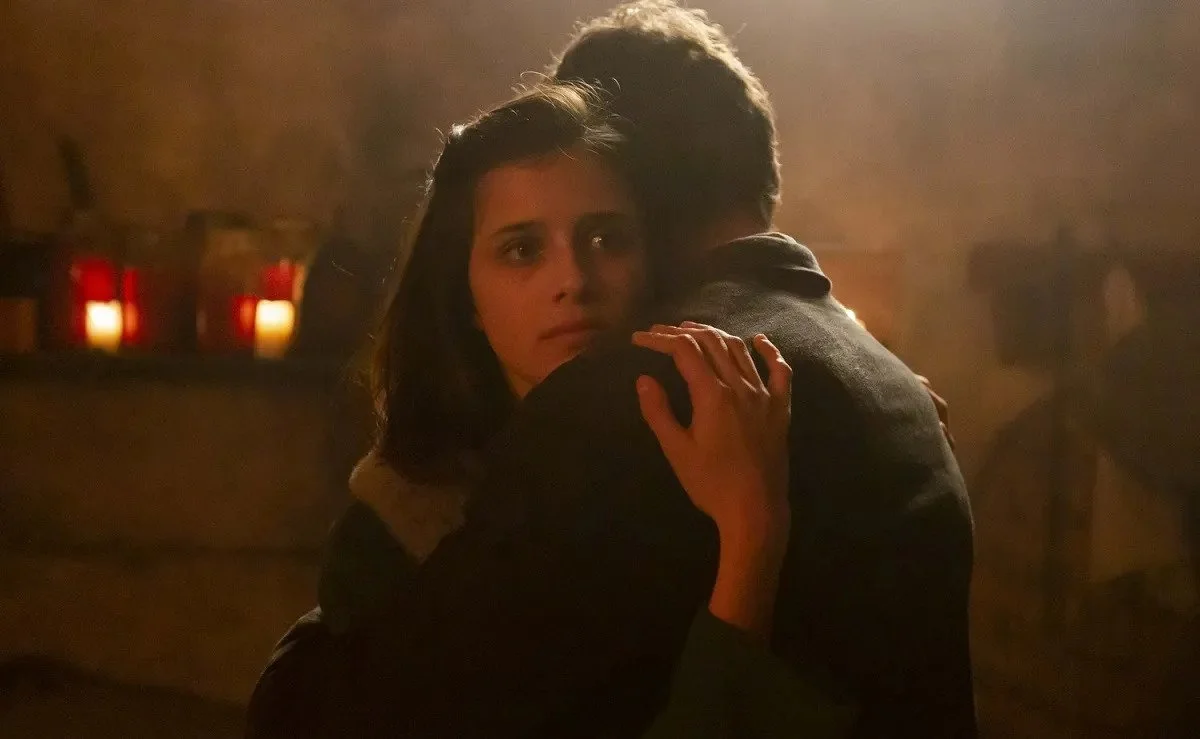The Shadow of the Day is an Italian film, but it is not so only because of the nationality of the director
(Giuseppe Piccioni) or the legal locations of the producers: l'Ombra del Giorno is a film about Italians,
without concealment. Those who read the synopsis might think of another of those tragic films about
fascism: one of those where only the most convinced fascists are the villains (but always a little less
than the Germans), while other Italians play the role of pseudo-victims. One of those which always
leave ample room for the spectacularization of atrocities.
Instead, The Shadow of the Days tells "Luciano’s fascism" (Riccardo Scamarcio), a decorated veteran
of WWI who has become a restaurateur under the arcades of Ascoli. Luciano does not fully believe
in Italian sovereignty: he certainly does not want his employees (Valeria Bilello, Lino Musella,
Vincenzo Nemolato) to mock the regime, but he never wears the black shirt. Above all, he seems to
care only about what happens in his restaurant or, at most, in the splendid Piazza del Popolo where it
is. Luciano is the expression of that Italy, of those of us who, despite suspecting its danger, closed
our eyes to fascism.
Of those who got a little lustre from Fascism, like a couple of medals and a commercial fund, but
traded it for their conscience.
Of those who "look only at their own little garden"- or at their square - always from the same point
of view - or from the window of their restaurant -.
Of those who are blind to the problems that do not tangle them, as when the sign "Aryan store"
appears on the window of a colleague.
Even before we talk about the second protagonist, this film is meant to be a critical look at that Italy
which is not told in History books or films of this genre. At all those who were in the middle between
the "resistant but not yet Resistance" left-wing and the Mussolinian right-wing and closed their eyes
to what was happening.
A century later, criticizing an entire people so harshly is at least unfairer. However, Giuseppe Piccioni
stages an assumption of "artistic responsibility" about a perspective that, especially in the cinema
industry, is never told. A point of view which should instead constitute the true moral, as in fables,
for those who study History in classes: “do not close your eyes”.
Luciano's eyes are opened again when Anna Costanzi (Benedetta Porcaroli), a young woman who
masks fear with great enthusiasm, is hired in his restaurant. Here the technical details of the screenplay
(Gualtiero Rossella and Annick Emdin, as well as Piccioni himself) become most appreciable. For
instance, the anti-Semitic details of Piazza del Popolo become more manifest. Then, the professor
(Antonio Salines, who passed away shortly after the film's release), a loyal customer who embodies
the culture and its power, previously sidelined to free the room for the fascists, returns to sit at his
usual table. This symbolic escalation culminates in the tripping of a "balilla" during a performance
that before, to Luciano, seemed so perfect.
If young Anna moves something in the heart and the head of Scamarcio's character, this is even more
evident when she confesses to being Jewish and, above all, wanted by the very same friends whose
invitations (to the traditional fascist gatherings) he always refuses.
Here then, our anti-hero is called upon to make a choice. To align his personal history with the History
that is happening out there, to lie, to hide, to plot, to speak, to act: to cast out the indifferent Shadow
that had been hanging over his Day. Luciano is called to take a part, to fight not for what he thinks,
but for what he actually believes in. This is the great legacy of this film, which, in the writer's opinion,
deserves to be shown in schools, instead of those “works” based on the spectacularization of human
cruelty, whose pedagogical effect has been discovered to be null for at least 40 years. If questioning
the past could sound unfair, Piccioni's movie is then a warning for the future, in case it happens again:
open your eyes, come out of the Shadow, take back the Day.

